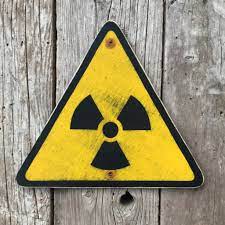The International Atomic Energy Agency recently expressed in a confidential report earlier this week that close to 2.5 tons of natural uranium have suddenly gone missing from a facility in Libya that is not controlled by the government of the nation.
Reuters issued a report that the nuclear watchdog for the U.S. told the member states about the events this week, as reported in documents that Reuters was able to view.
A statement issued by IAEA chief Rafael Grossi explained that the inspection was slated to take place last year, but “had to be postponed because of the security situation in the region.”
The investigation team “found that 10 drums containing approximately 2.5 tons of natural uranium in the form of UOC (uranium ore concentrate) previously declared by (Libya) … as being stored at that location were not present at the location,” indicated the report.
“The loss of knowledge about the present location of nuclear material may present a radiological risk, as well as nuclear security concerns,” the report indicated.
Officials stated that investigations were already being carried out in efforts to try and locate the massive amount of missing nuclear materials. The name and location of the site were not officially revealed, however, a number of officials stated that getting to it necessitated “complex logistics.”
As reported by the U.S. Nuclear Regulatory Committee, natural uranium only contains about 0.7% uranium-235, which is the specific isotope required to build nuclear weapons. In order to make nuclear weaponry, this Uranium has to be forced to undergo an intensive enrichment process as a means to concentrate uranium-235.
The CDC has indicated that natural Uranium poses “little radioactive danger because it gives off very small amounts of radiation.”
Natural uranium has also not been marked as a threat for making dirty bombs, as reported by the Senior Fellow for the Strategic Security Program at the Federation of American Scientists, Ivan Oelrich. Ph.D.
Libya is known to be one of the most dangerous and unstable countries in the world as both the al-Qaeda and ISIS terror groups are known to carry out operations in the country and have committed to attacks within the borders of the country.
The U.S. State Department has placed the strongest travel advisory that i can to Libya, warning any and all U.S. citizens not to make any kind of trip to the country because of the risk of “crime, terrorism, civil unrest, kidnapping, and armed conflict.”

